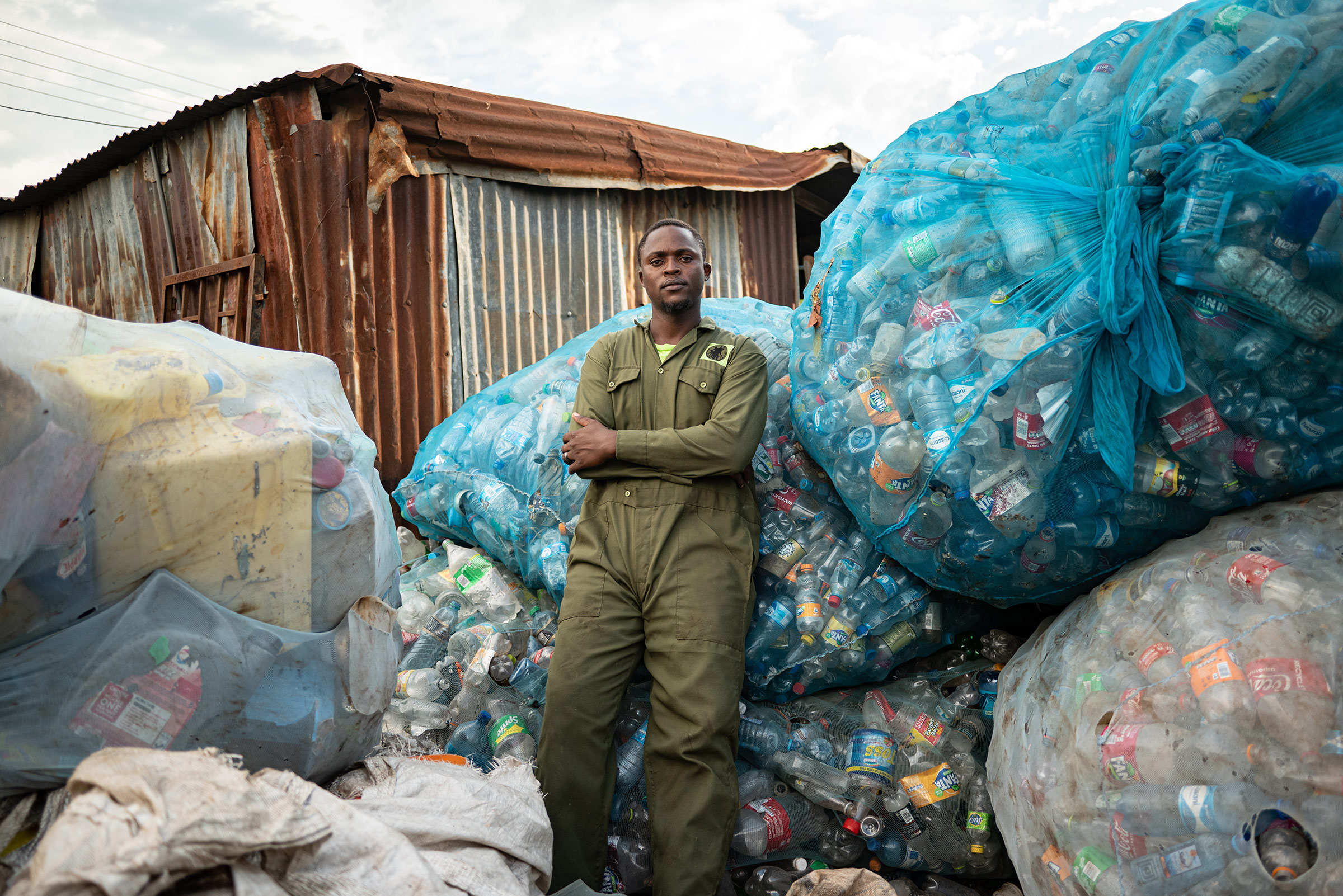When John Chweya was 11 years old, a market fire in Kisumu, Kenya, destroyed his family’s used-clothing business. To make ends meet, Chweya collected recyclables from garbage dumps. The work earned him a paltry salary, along with the derision of former friends.
Now 32, and the leader of Kenya’s 36,000-strong Waste Pickers Association, Chweya is taking on those who shun his line of work. He tells fellow Kenyans that without scavengers like him, very little of the country’s trash would ever be recycled—it is estimated that the world’s 20 million waste pickers are responsible for collecting 60% of recycled plastic globally.
In May, Chweya called for a more sustainable approach to plastic at a U.N. conference in Paris dedicated to ending plastic pollution. Because single-use plastics have no recycling value, waste pickers won’t collect them. So they are incinerated instead, which poses a risk to the health of waste pickers, not to mention the environment. “If it is not recyclable, it should not be produced,” he says.
But wouldn’t a binding global treaty that reduces plastic production put Chweya and millions of waste pickers out of a job? Kenya, like far too many places around the world, has enough plastic in landfills to keep the country’s waste pickers busy for another 100 years, he says.
- Inside Elon Musk’s War on Washington
- Meet the 2025 Women of the Year
- The Harsh Truth About Disability Inclusion
- Why Do More Young Adults Have Cancer?
- Colman Domingo Leads With Radical Love
- How to Get Better at Doing Things Alone
- Cecily Strong on Goober the Clown
- Column: The Rise of America’s Broligarchy





